10:16
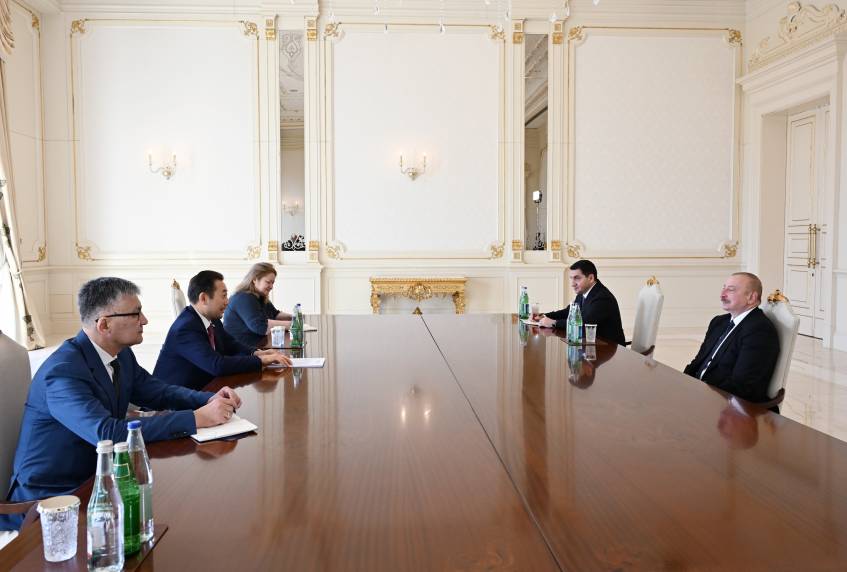
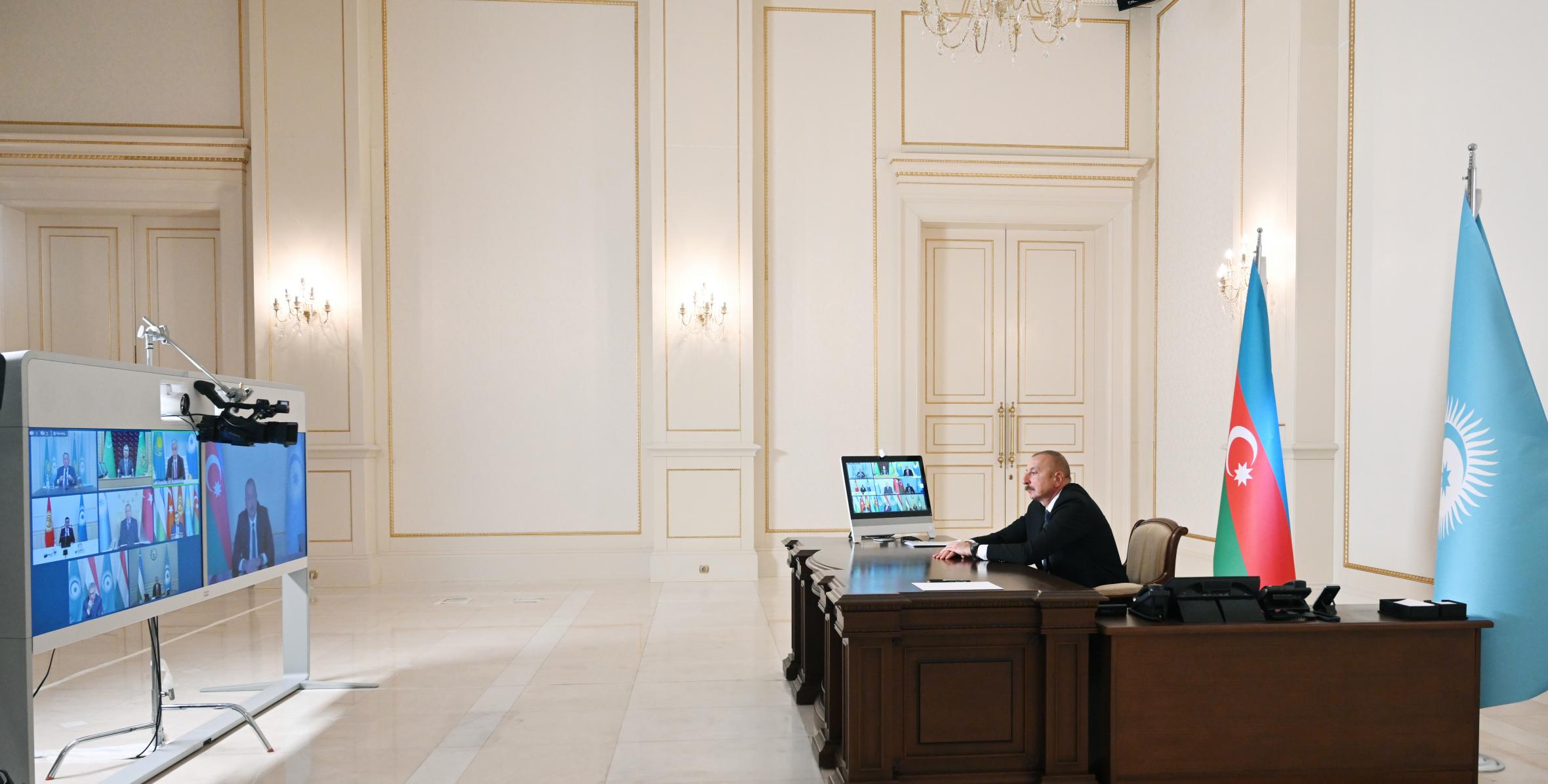
An informal Summit of the Cooperation Council of the Turkic-Speaking States (Turkic Council) has been held in a video conference format.
President of the Republic of Azerbaijan Ilham Aliyev delivered a speech at the Summit.
In his opening remarks, President of the Republic of Kazakhstan Kassym-Jomart Tokayev welcomed the event participants.
The head of state delivered a speech at the Summit.
Speech by the President of the Republic of Azerbaijan Ilham Aliyev
- Dear President of the Republic of Kazakhstan,
Dear colleagues.
First of all, I would like to thank Nursultan Abishovich Nazarbayev for his initiative to hold the Summit. Nursultan Abishovich Nazarbayev is very active as Honorary Chairman of the Turkic Council, and this Summit is a vivid testimony to that.
Today's Summit is the second gathering since the October 2019 Summit in Baku. A year ago, in April last year, a Summit on COVID-19 was held at Azerbaijan's initiative in Baku, and that speaks for itself. It shows that summits are held regularly and positively impact the unity between member states.
Late this year, Azerbaijan will hand over its chairmanship of the Turkic Council to brotherly Turkey. An overview of the work done during Azerbaijan's chairmanship will be presented at the official Summit in Turkey.
Today, I would like to take this opportunity to offer information about the second Karabakh war. As you know, Armenia had occupied the internationally recognized territories of Azerbaijan for almost 30 years. Due to this occupation, about 20 percent of our lands were occupied by Armenia, and more than a million Azerbaijanis were expelled from their native lands, becoming refugees. A policy of ethnic cleansing was pursued against our people. Armenia committed genocide against Azerbaijan. As a result of the Khojaly genocide in 1992, more than 600 innocent civilians were brutally killed. Among them were 106 women and 63 children.
International organizations have consistently supported Azerbaijan's position. However, this support was not tangible in real life because the issue remained unresolved. The UN Security Council, the world's highest international body, has adopted four resolutions. Those resolutions demanded an immediate, complete and unconditional withdrawal of the Armenian armed forces from the occupied territories. Those resolutions were adopted in 1993 and had remained on paper. Other international organizations' resolutions supported Azerbaijan's position, and that had enormous political and legal significance. However, on a real and practical level, they failed to yield a solution to the problem. The OSCE, the Non-Aligned Movement, the Organization of Islamic Cooperation, the European Parliament, the Parliamentary Assembly of the Council of Europe and other organizations have defended Azerbaijan's just position.
The OSCE Minsk Group was established in 1992 to resolve the issue, and although it had been working for 28 years, there was no result. The result of the Minsk Group's performance was equal to zero. Yet, the countries co-chairing the Minsk Group are the world's leading countries, nuclear-weapon states, and permanent UN Security Council members. Indeed, the issue could have been resolved peacefully long ago if perceptible pressure had been put on Armenia because of the occupation and if sanctions had been imposed in response to Azerbaijan's demands.
Regrettably, that did not happen. On the contrary, steps were taken to freeze the issue. As a matter of fact, Armenia refused to engage in negotiations, whereas, in previous years, it was at least involved in imitating the talks. Yet, in the last two to three years, they had been saying openly and demonstratively that not an inch of Azerbaijan's land would be returned to Azerbaijan. Also, the irresponsible and provocative actions and statements of the Armenian leader rendered the talks meaningless. Two years ago, the Armenian leader said that "Karabakh is Armenia and full stop." Of course, we had an answer for that, and the most concrete response was given on the battlefield. However, that in itself shows that the Armenian leadership considered the matter resolved and did not want to return the lands. Besides, the former Armenian defense minister, who was fired after a military defeat, threatened Azerbaijan with a new war. At a meeting with Armenian diaspora organizations in the United States, he announced that Armenia was preparing for a new war for new lands. That was a severe provocation against Azerbaijan. The former defense minister who threatened us with war was fired for a military defeat.
Another provocative step was the swearing-in of the illegal junta, the former head of the Nagorno-Karabakh regime, in the ancient Azerbaijani city of Shusha, our cultural capital. That was an insult to the Azerbaijani people. The relocation of the so-called parliament of the so-called "Nagorno-Karabakh republic" to Shusha and the construction of a building for the parliament – which will now be demolished – was another provocative step. In other words, all these actions demonstrated that Armenia was provoking us, was counting on a harsh response from Azerbaijan to blame us later and try to procrastinate the issue for another 30 years. We did not fall for the provocation. We acted with restraint, according to every norm and principle of international law, but Armenia committed a military provocation against us last summer. Our positions on the Armenia-Azerbaijan border came under fire. Armenian military units tried to cross our border, and several of our servicemen were killed. We responded, threw them back, but we did not cross the Armenia-Azerbaijan border. The military clash that lasted for several days stopped because we did not intend to wage war on Armenia's territory. Had we chosen so, we could have easily entered Armenia's territory. A month later, in August, a new provocation was committed when a sabotage group was sent to Azerbaijan. The head of the subversive group was detained and testified that he was sent to Azerbaijan to carry out acts of terror – so that was another provocation.
Finally, in late September, our military positions and residential areas came under artillery fire, and several of our servicemen and civilians were killed. Naturally, we responded befittingly, conducted a counter-offensive and punished the enemy. The 44-day Karabakh war resulted in a complete victory for Azerbaijan. Azerbaijan regained its territorial integrity; more than 300 towns and villages were liberated on the battlefield. Our historic city of Shusha was rid of the invaders on 8 November, and Armenia was forced to sign an act of capitulation.
In the early hours of 10 November, the presidents of Azerbaijan and Russia and Armenia's prime minister signed a statement. Based on this statement, our other districts were returned to Azerbaijan through political means. Thus, the issue was resolved by both military and political means. It is safe to say that the Nagorno-Karabakh issue, the Nagorno-Karabakh conflict, has been resolved. There is presently no administrative unit named Nagorno-Karabakh. Azerbaijan has resolved this issue, achieved a historic victory and started restoration work in the destroyed areas.
We have received tremendous support from brotherly Turkey since the first day of the war. My dear brother, President Recep Tayyip Erdogan, openly expressed support for Azerbaijan on 27 September, the day the war broke out. This political and moral support was crucial. My dear brother stated that Azerbaijan was not alone and that Turkey was with Azerbaijan. Of course, it was a solemn message, an important signal. That allowed us the opportunity to conduct a successful counter-offensive and prevented outside forces from interfering. I have always said that without foreign intervention, Azerbaijan could resolve the Nagorno-Karabakh conflict in a short time, and so it happened. I want to express my deep gratitude to brotherly Turkey and its esteemed President Recep Tayyip Erdogan for this support. Numerous statements by President Erdogan and other Turkish officials during the war and at various times have played a critical role in resolving the issue. President Recep Tayyip Erdogan was the first to congratulate the people of Azerbaijan and me on the liberation of Shusha. He conveyed this congratulation to us on 8 November. The Turkic Council issued a statement in support of Azerbaijan on 28 September, a day after the war. It made similar statements several times during the war. We thank the Turkic Council for that. Other international organizations such as the Non-Aligned Movement and the Organization of Islamic Cooperation have extended their political support.
Everything in the liberated lands has been destroyed. Journalists and diplomats are visiting those places now. They see that cities, villages and homes have been devastated and our historical sites razed to the ground. Foreign and local journalists have called Aghdam the Hiroshima of the Caucasus. After the liberation of Fuzuli, there was not a single safe building left in the city for us to raise the Azerbaijani flag. Armenians have ravaged our cities, annihilated our historical sites, plowed the cemeteries, knocked down gravestones, and wrecked more than 60 mosques and kept cows and pigs in semi-demolished ones. These videos are available on the Internet. In other words, this is an affront to the entire Muslim world, a crime, and the whole world already witnesses that and should take note of that. We have fulfilled our historical mission. We have crushed Armenian fascism. At present, restoration work has begun. After the war, many Azerbaijani civilians and servicemen were killed and wounded by landmines. Armenia has not yet presented the maps of minefields to us. That is another war crime. Therefore, demining will take more time. Without completing this work, of course, we will not be able to return our IDPs and refugees to those lands.
The war is over, and the conflict belongs to history. New opportunities have emerged. I think the most critical opportunity among these is transportation. We are already working very hard on the Zengezur corridor. At the Summit in Nakhchivan, I said that the decision to separate Zengezur from Azerbaijan and annex it to Armenia led to a geographical divide of the Turkic world. If we look at the map, it looks as if a dagger was stuck in our body and the Turkic world was separated. Zangazur, the land of ancient Azerbaijan, will now play the role of uniting the Turkic world because the transportation, communication and infrastructure projects across Zengezur will unite the entire Turkic world and create additional opportunities for other countries, including Armenia. Armenia currently has no railway links with its ally Russia. That railway link can be established through the territory of Azerbaijan. Armenia has no railway connection with its neighbor Iran. That railway link, too, can be secured through Nakhchivan. Azerbaijan will be connected with Turkey through the Nakhchivan Autonomous Republic, and Central Asia will connect with Europe. Therefore, a new transportation corridor is being created. Azerbaijan has already begun this work. I am confident that our partner countries will also take advantage of these opportunities.
As I conclude my speech, I want to repeat that I have dedicated my statement to this issue. It is only natural because the leaders of friendly countries must know the essence of the matter. I hope that we will discuss this matter issue in a broader format during our future in-person contacts. I am sure that we will all attend the Summit in Turkey in person. As the chairing country, we will report on the work done and talk about future plans. Thank you for your attention.
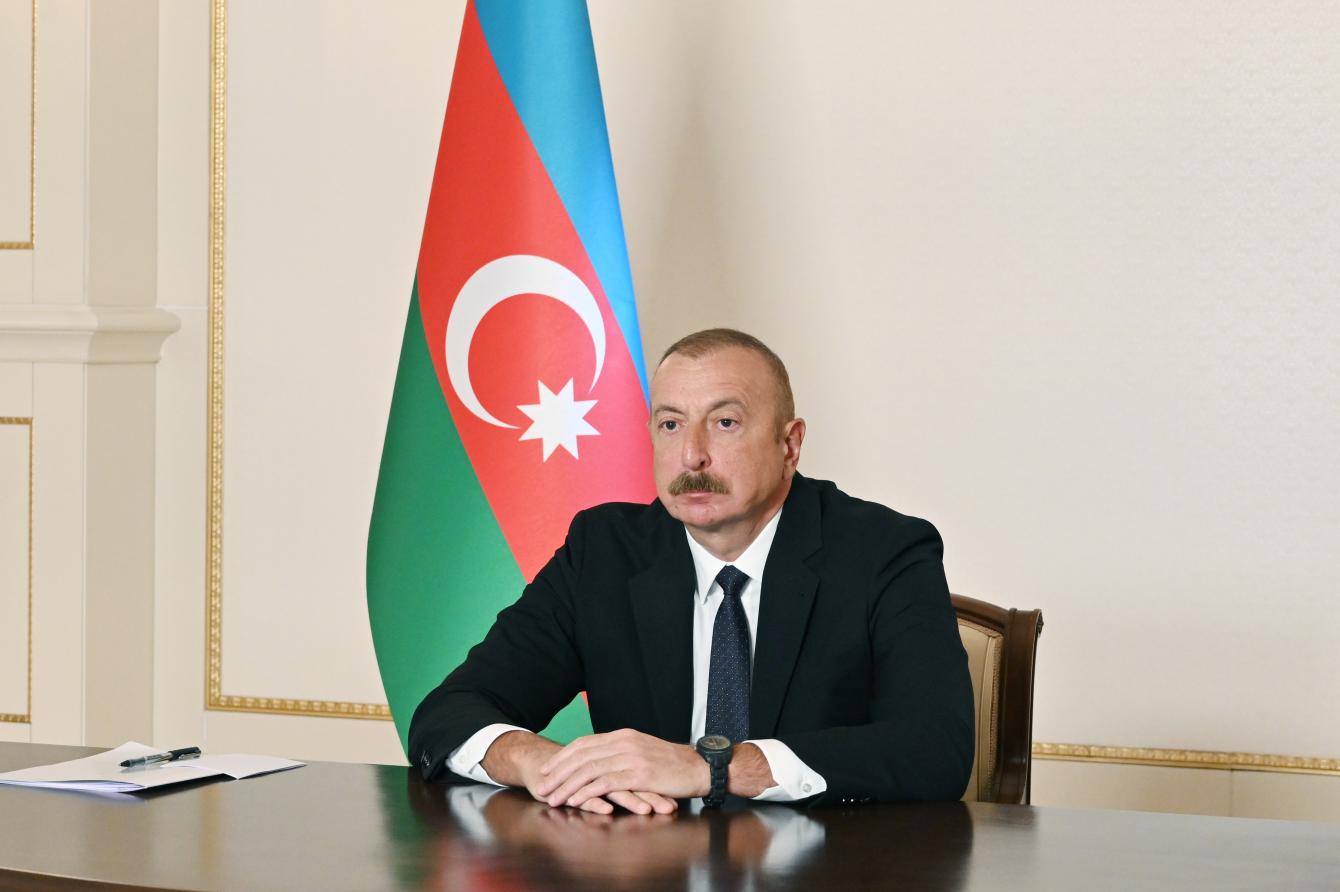
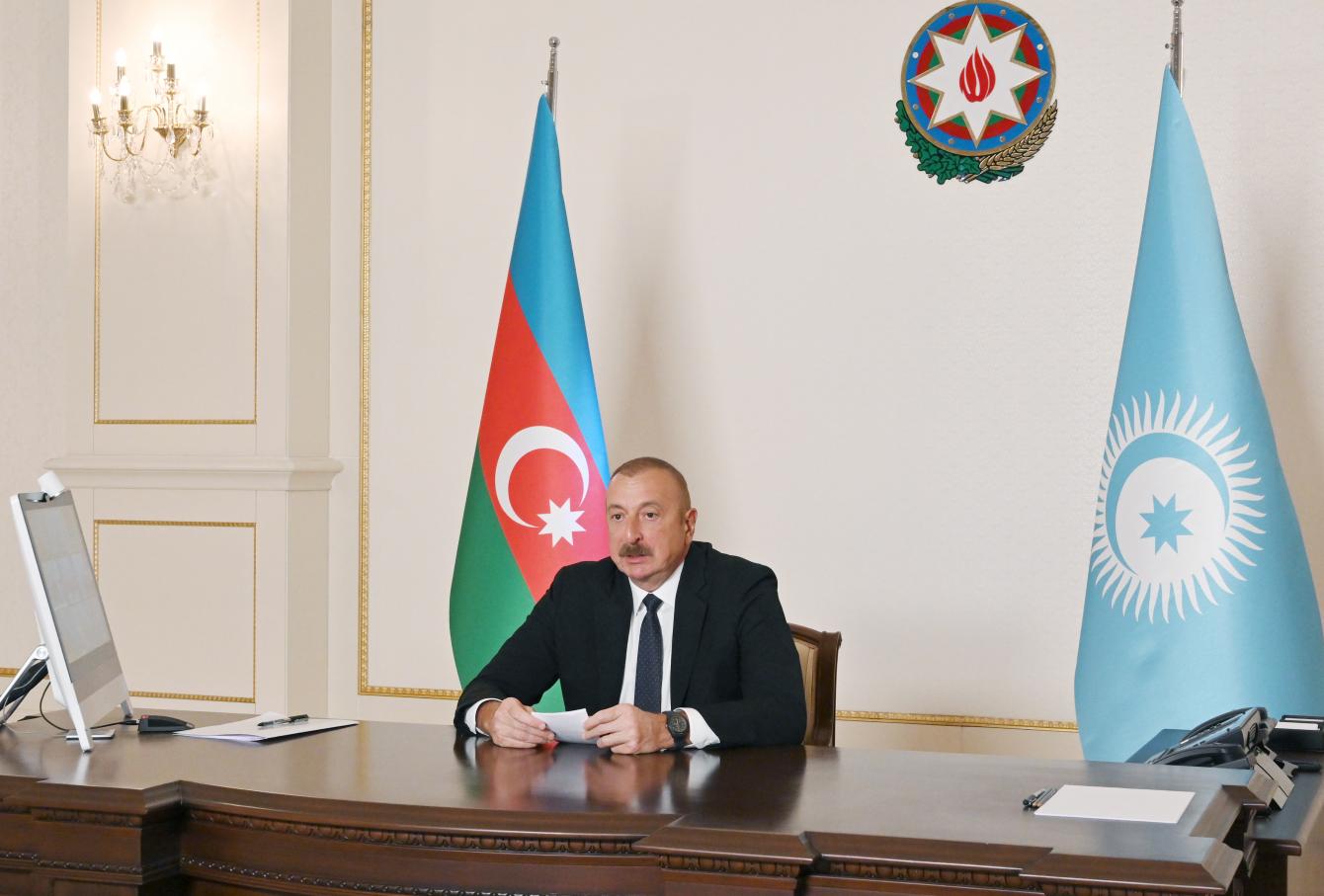
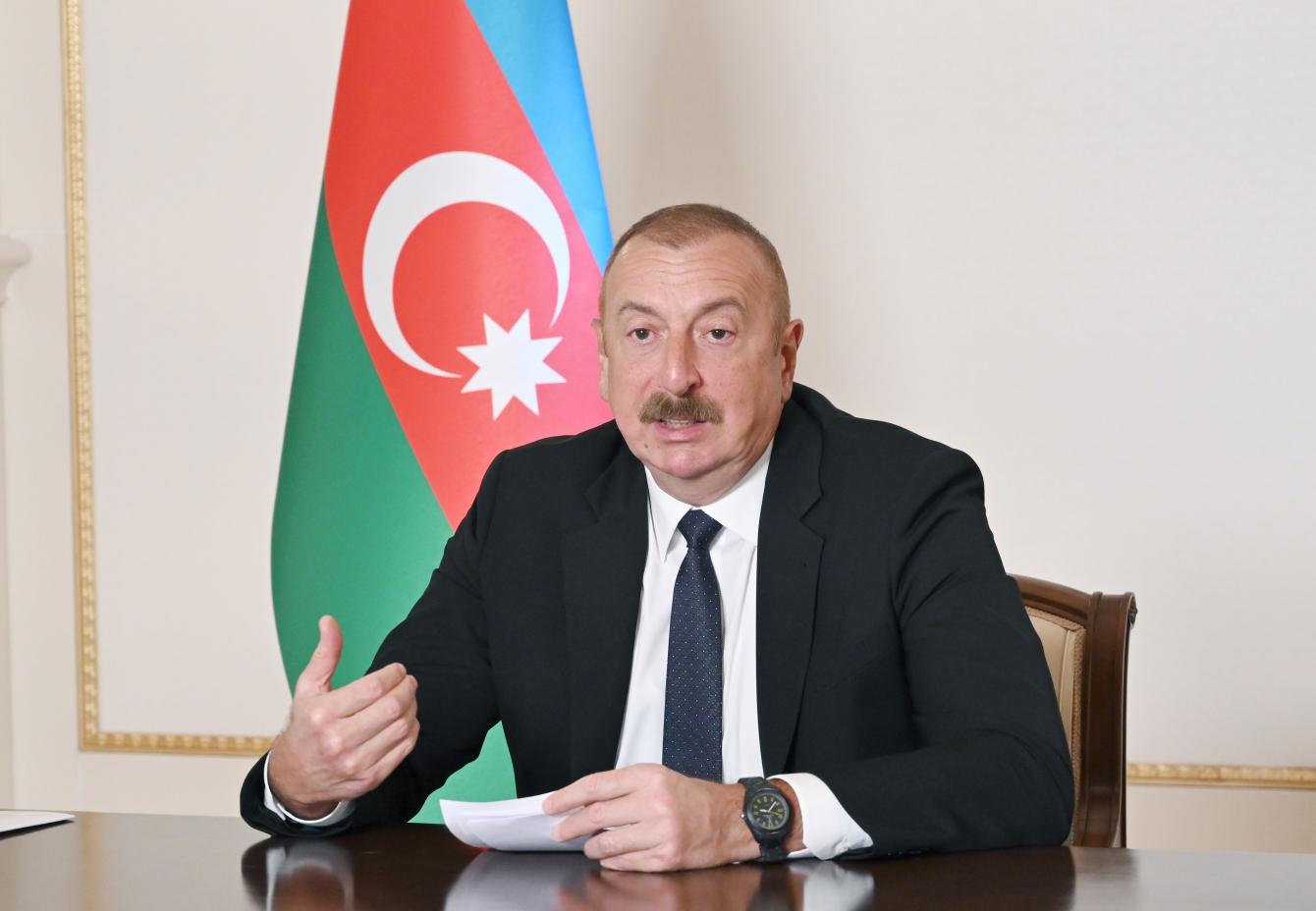
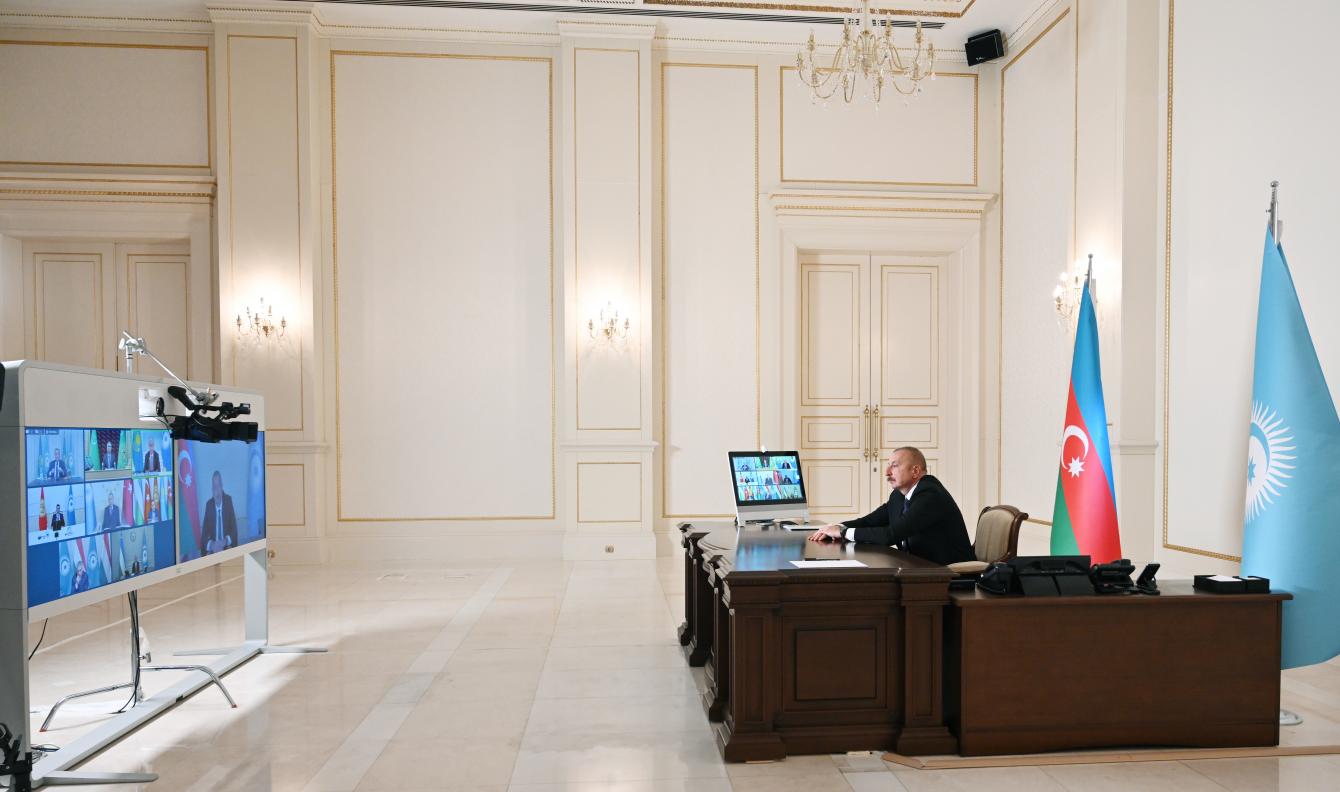

Aleksandar Vučić, President of the Republic of Serbia, made a phone call to the President of the Republic of Azerbaijan Ilham Aliyev, on April 16, briefing him on the pressures Serbia has been encountering recently and requesting the support of the friendly...
16 April 2024, 20:36Dear Mr. Pellegrini,
I sincerely congratulate you on your election as the President of the Slovak Republic.
The development of friendly relations with Slovakia holds great significance for us. Currently, there are good opportunities for enriching the...
15 April 2024, 13:06Prime Minister Muhammad Shehbaz Sharif of the Islamic Republic of Pakistan made a phone call to President Ilham Aliyev of the Republic of Azerbaijan on April 9.
Pakistan's Prime Minister congratulated the head of state on the occasion of Eid al-Fitr and wished...
09 April 2024, 19:52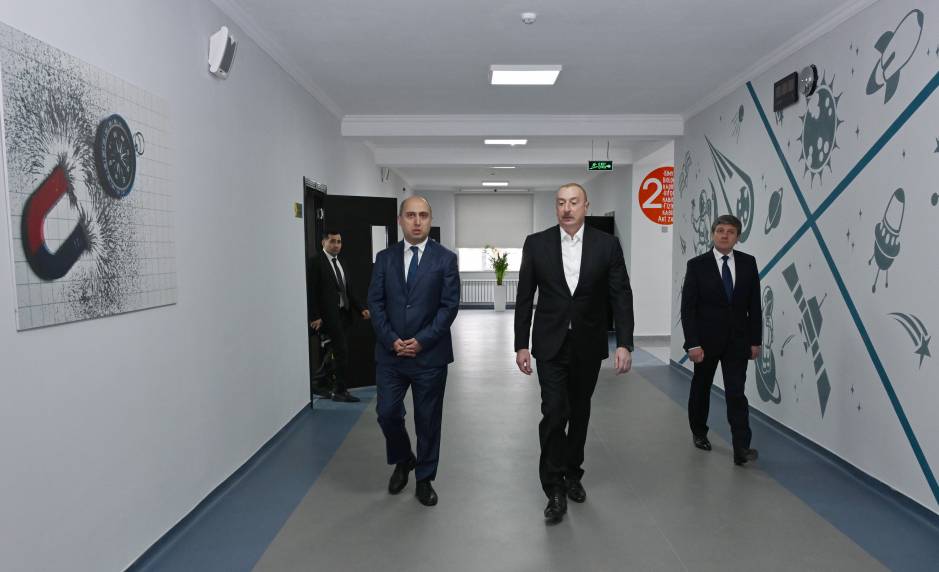
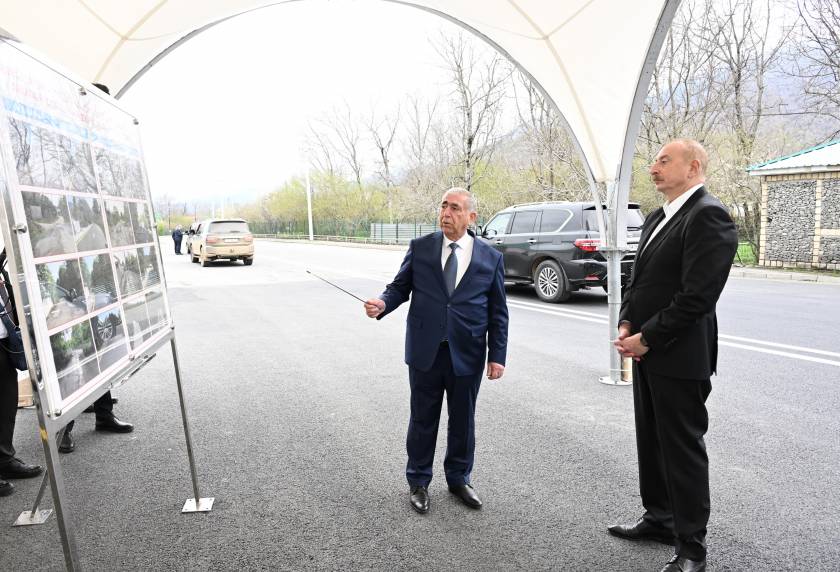
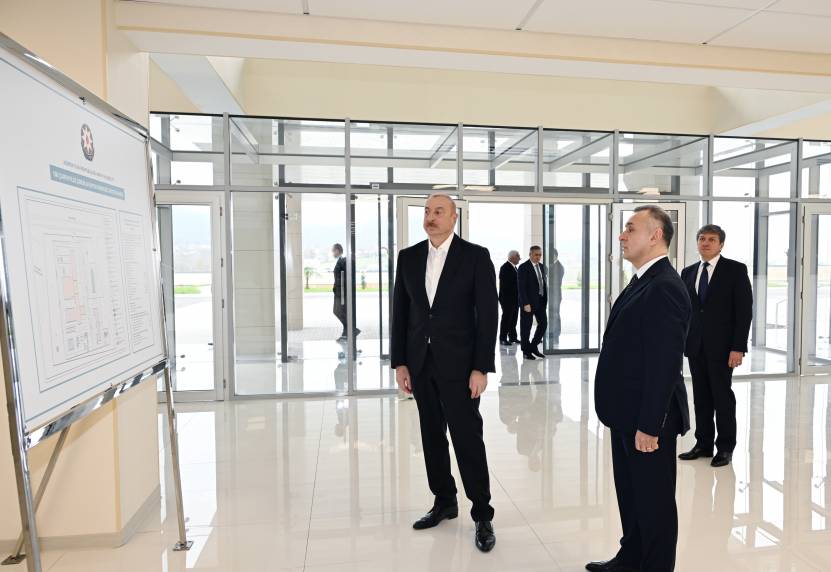
On April 9, President Recep Tayyip Erdogan of the Republic of Türkiye made a phone call to President Ilham Aliyev of the Republic of Azerbaijan.
The President of Türkiye congratulated President Ilham Aliyev on the occasion of Eid al-Fitr and wished the people of...
09 April 2024, 15:39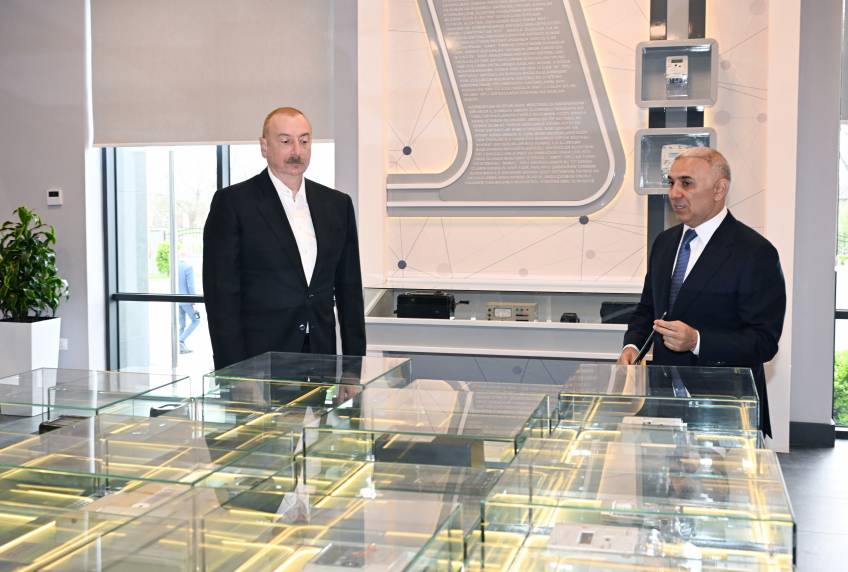
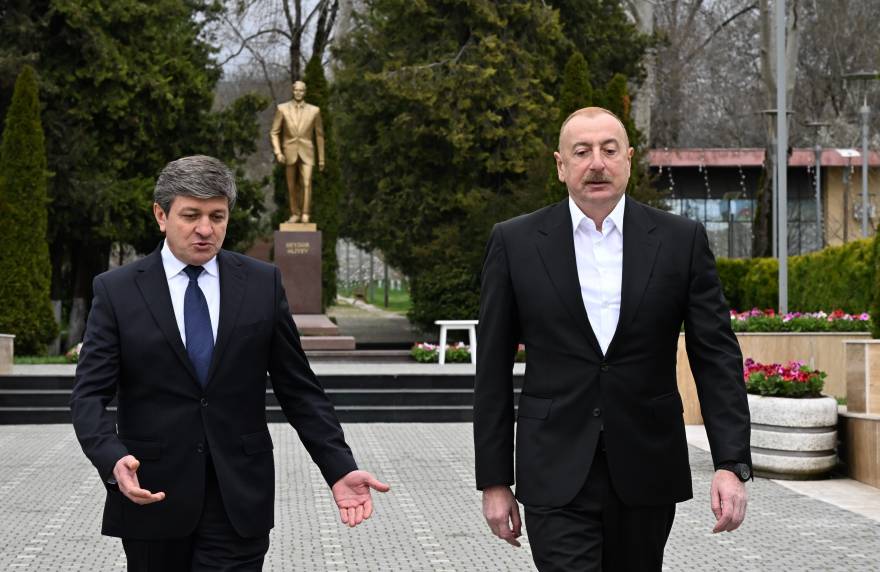
President of the Republic of Azerbaijan Ilham Aliyev has toured the Qabala district.
The head of state visited the monument to National Leader Heydar Aliyev erected in the city of Qabala and participated in the opening ceremonies of the 110/35/10 kV "Hajialili"...
09 April 2024, 15:14